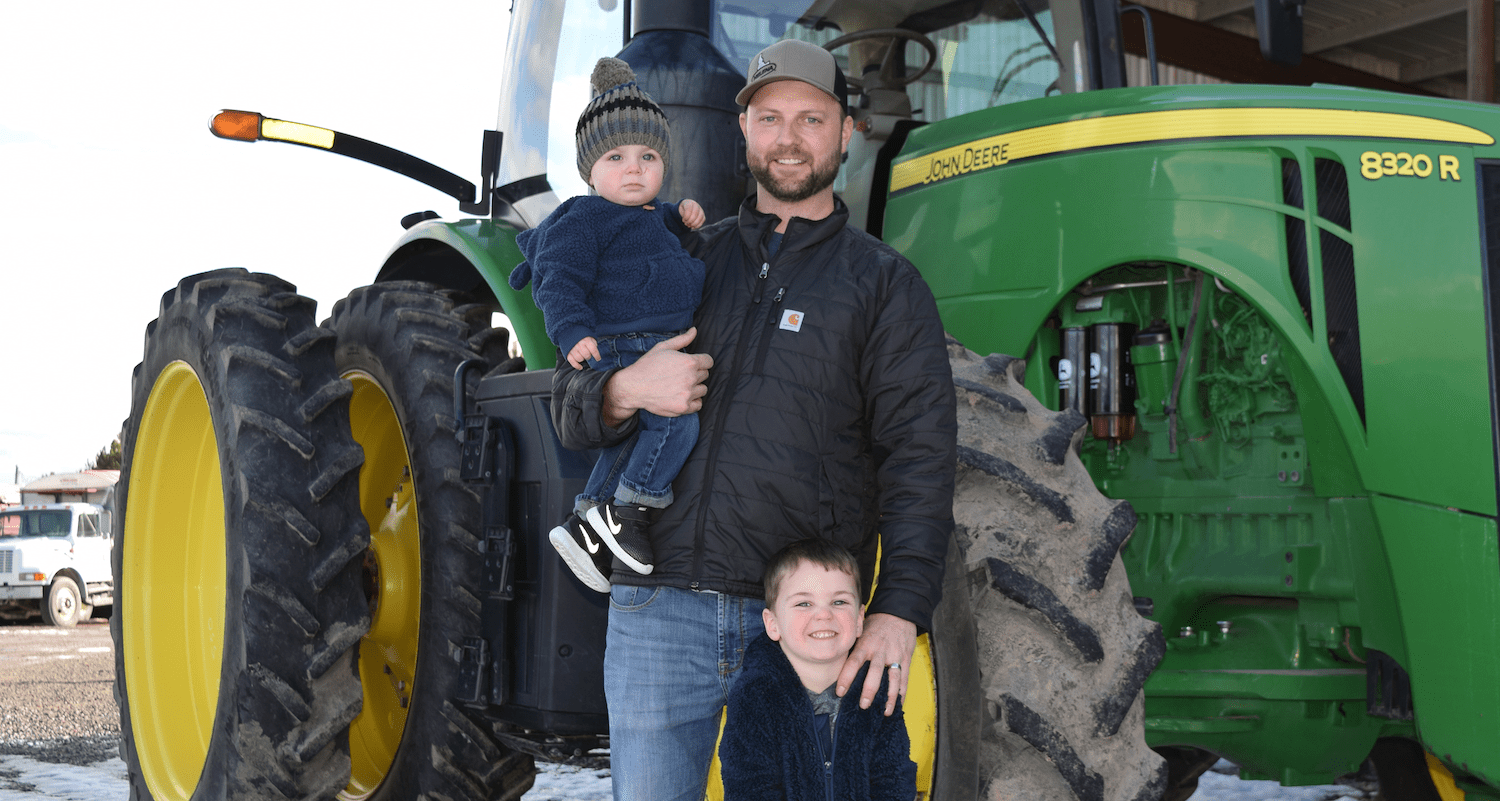Ben Marshall, a fifth-generation sugar beet farmer, loves what he does and feels lucky to still farm with his dad. After growing up on his family’s farm, Ben graduated college and became a firefighter with the US Forest Service. Ben experienced life elsewhere for many years and then returned to what he knows best: sugar beet farming. After sleeping on the ground many nights while fighting wildfires, Ben jokes that at least you get a bed when you’re a farmer. Now Ben considers himself lucky for being able to return to his family farm, which produces sugar beets, malt barley, corn (for dairies), wheat and alfalfa seed.
Ben’s passion for farming is rooted deep in his past. He was granted tremendous amounts of responsibility from a very young age, weeding the fields at age 6 and driving the tractor at age 8. And just as Ben grew in the shoes of his father and grandfather, his sons are set to be the sixth generation on the family farm. At ages 4 and 1, they are a little too young to be given real responsibility just yet, but Ben is committed to making sure his kids will learn to cultivate their crops just as he did.
A passion for farming doesn’t necessarily make things easy though. 2020 has proven to be exceedingly difficult for the farm, as it has for many. In addition to COVID-19 restrictions and new guidelines, Ben’s farm encountered many challenges from Mother Nature. Only 10 days after planting, frost set in with 25-degree temperatures for 5 days in a row. Just as conditions began to improve, sustained winds of over 45 miles per hour demolished two-thirds of the crop. Since both events occurred so soon after planting, Ben and many farmers in his area had to start over and replant. Such significant roadblocks threaten yields and cause farms to struggle. Ben takes this season’s struggles as a reminder that although farming may be his chosen lifestyle, “everything is up to Mother Nature.”
Taking care of the land is important to Ben, and he hopes all farmers share this conviction. Ben stresses that while farmers utilize various methods and are always experimenting with alternative techniques, all farmers and farming practices must be sustainable. With the continued evolution of pesticides, herbicides and fertilizers, farmers are able to use fewer products and produce a larger yield. Advances in broad-spectrum herbicides and GMO seeds have improved weed management processes and shortened them drastically, if not eliminated them altogether. These practices not only decrease the time, energy and money Ben spends, but they also reduce the farm’s direct impact on the environment.
The ever-changing nature of farming keeps Ben working diligently to try new methods and do what is best for his land so that it continues to thrive and support his family for generations to come. For Ben and so many other farmers, sugar beets are special. He recognizes that “the only reason [the farm] is still in business is because our yield has doubled in the past 20 years and continues to go up.” Even through troubling years and crop yields, Ben’s farm is doing well. Ben and so many other American sugar farmers are truly the backbones of the food industry.




Get Social with #MoreToSugar